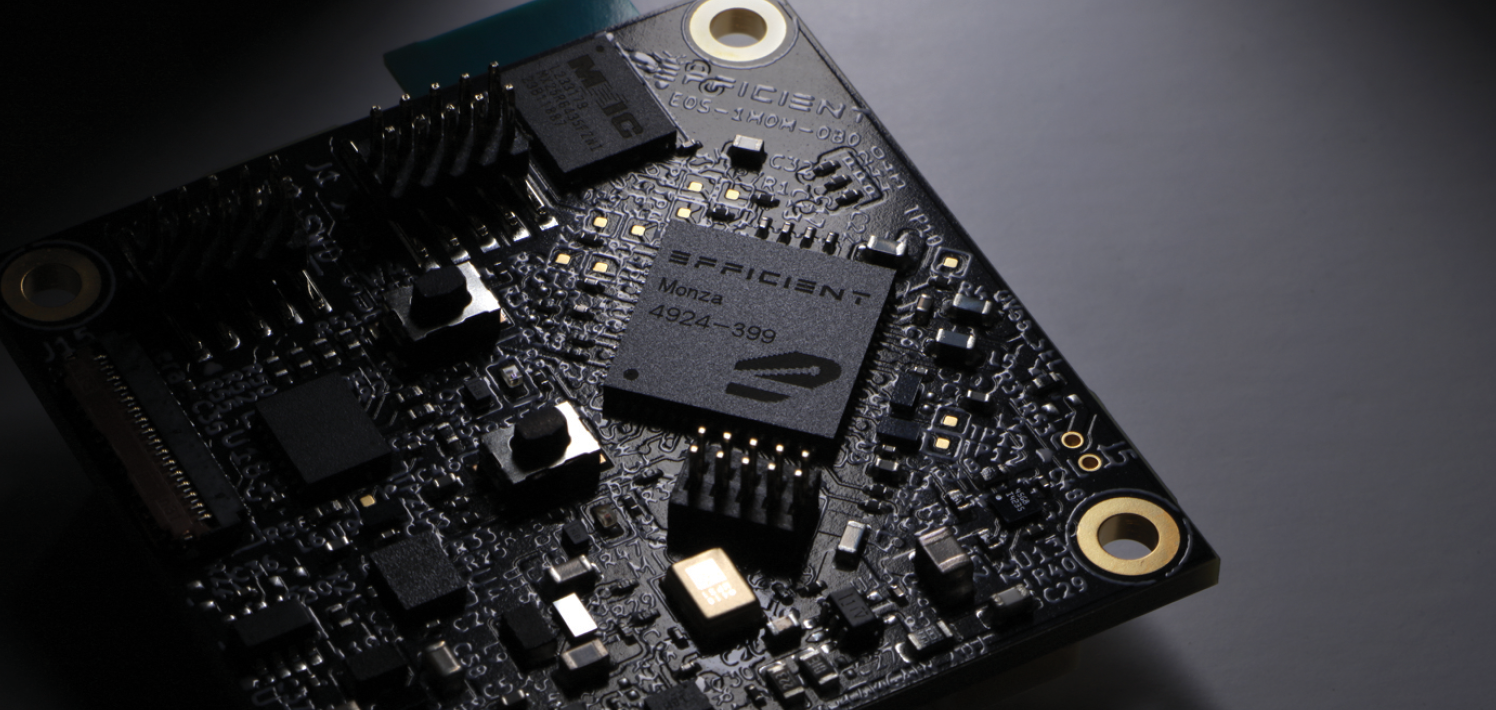There has been much made in the press lately about the rising energy use of AI. But what would happen if, when you were building a general-purpose computer, every time you had to
make a design choice you chose the most energy efficient option? That’s what the founders of Efficient Computer are finding out.
Efficient Computer Saves Energy
TRICIA MILLER KLAPHEKE
Brandon Lucia and Nathan Beckmann, who are both faculty in the School of Computer Science and the Electrical and Computer Engineering Department, had been looking into this question in their own work, and that accelerated when they co-advised Graham Gobieski on his Ph.D. research starting in 2016. The fourth founder, Alex Hawkinson (DC 1994), has ample startup experience. Over seven years, they pursued this idea that you could do the same amount of computing using a lot less energy.
“At one point there were results that were so good that we had Graham go and re-implement everything and redo the work and evaluate again,” recalled Lucia, Efficient Computer’s CEO. “The numbers were so good that we didn’t believe them. When we saw those same numbers again, we started to believe them and understand the commercial potential.”
Efficient Computer was founded to commercialize research technology funded by the National Science Foundation. In February 2023, Efficient Computer hired its first non-founder engineer, and by that October the team had sent out its entire system for fabrication on chip, an effort Lucia called “a bit heroic.” The company announced in March 2024 that it had raised $16 million in its first seed funding round with the help of Eclipse VC. By the middle of 2025 Efficient Computer employed 45 people across two offices located in Pittsburgh and San Jose.
The Efficient Computer team
The company works with its partners to develop processors they can use across their systems. Extremely energy efficient general-purpose computers are disproportionately helpful in three industries: infrastructure and industrial automation, space and defense, and wearables. In all three cases, extending the amount of time before a computer needs a new battery makes an immense difference.
A utility company, for example, might have a device doing signal processing, machine learning, and data analytics computations, extracting valuable information from data collected by millions of sensors placed on infrastructure, such as gas pipelines and power lines. The computational capability of these types of embedded devices is limited primarily by energy, and Efficient Computer is eliminating the limitations of existing inefficient processor architectures to extend battery life in devices like these from a few months to many years.
“For our customers, that is a big operational expense decrease, because they don’t have to change batteries, they don’t have to service devices. It makes those applications feasible at an extremely large scale for critical civil infrastructure and industrial sensing use cases,” Lucia said.
Efficient Computer is poised to enable its first customers to thrive and have an exceptional developer experience with its category-defining, energy-efficient embedded processor. For the longer term, Efficient is scaling up its technology to develop a second product line focusing on higher performance for larger computations that require more data and more computing speed, and that would benefit even more from better energy efficiency. Efficient Computer’s ambitions will continue to grow over the long term.
“We’ve created the world’s most energy-efficient, general-purpose processor, and we want to bring this to the market to be the leader in energy-efficient computing for all of computing,” Lucia said. ■




